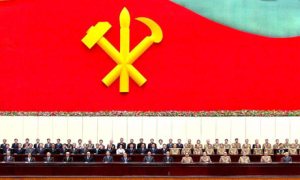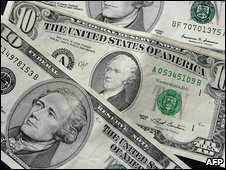
Toyota President Akio Toyoda bows
CNN Money: Click Here
Reuters: Click Here
‘Yabeやべ (Oh shit)! I’m screwed.’ That’s what Akio Toyoda, the Toyota president, might have said to himself on February 5th when he bowed apologizing for the safety issues regarding its gas pedal.
According to CNN Money, Toyota Motor Sales USA is recalling 2.3 million vehicles to correct a problem that could cause the vehicles’ gas pedals to stick. This recall will definitely affect Toyota’s reputation and its sales globally.
Now, lets get to the question of ‘how did Toyota get in this mess?’ There are several reasons why this recall happened, however, there is one core reason that led to this tragedy of Toyota.
December 21, 2009, Toyota announced that cut auto parts costs by 30 percent. According to media, Toyota canceled contracts between its auto parts partners in Japan and made new contracts with much cheaper auto parts partners (mostly outside of Japan). In my opinion, Toyota’s pedal problem was caused mainly by the cheap auto parts it used.
I do not think Toyota was dumb enough to forget that by using cheap auto parts it’ll create some safety problems. Then, why did Toyota use cheap auto parts? If you look deeply into the core of the problem, you can easily find out that it was an inevitable decision. It is deeply related to current recession world-wide and the low exchange rate of yen per 1 US dollar.

As you see on the graph, the exchange rate had been falling for 5 years. The red line shows the declining trend of yen to US dollar. It has fell from 124yen
(highest) to 86yen(lowest). As yen to US dollar got lower, Toyota experienced difficulty in exporting its cars to US because the car price became expensive in US. With the low exchange rate, it really was hard for Toyota to compete against other car makers such as Hyundai. Hyundai is a car maker based on Korea, however, it has been lucky because of the high exchange rate of Korean Won to USD. It was possible for this car maker to provide cars at much lower price compared to Toyota. So, Toyota was losing in price competition.

Toyota’s Stock Price in Yen
So, Toyota had to cut down its auto parts price by 30% in order to survive in this price competition. However, this was too much price cut, which basically caused the safety issues of Toyota cars. As a result, Toyota was forced to recall its 2.3 millions of cars by the US Congress. Also, the stock prices of Toyota fell from 4250yen to 3250yen. Notice how it fell after Toyota’s recall announcement from Jan mid to Feb mid. 4250 yen to 3250yen is certainly a great loss to many investors.
In conclusion, Toyota’s pedal problem was caused by using cheap auto parts. It may have been bitter lesson for Toyota to not to use cheap auto parts to the degree it hurts the car’s safety. Looking at Toyota’s Stock Price graph, I think many Toyota investors would be whining because of their loss.
 Picture by Wikimedia Commons
Picture by Wikimedia Commons A satiric picture of how free markets can result in failed markets.
A satiric picture of how free markets can result in failed markets.





 Chinese Vice Foreign Minister He Yafei says the U.S.-Taiwan arms deal “severely” endangers China’s national security.
Chinese Vice Foreign Minister He Yafei says the U.S.-Taiwan arms deal “severely” endangers China’s national security.